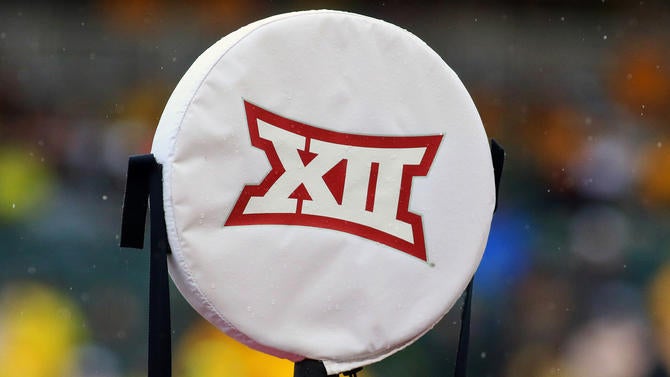DALLAS -- Big 12 administrators will be presented with information this week at the league's spring meetings that expansion could earn the conference at least an additional $1 billion over the length of its remaining TV rights contract, CBS Sports has learned.
If the league expands by four teams, provisions in its contracts with ESPN and Fox provide money for that benchmark. If the expansion is by two teams, the increase would be $500 million.
Those rightsholders are contractually bound to provide "pro rata" for any new Big 12 members. That is, any new members would be paid an equal share of the current Big 12 members -- approximately $23 million per year.
While on its face that doesn't necessarily help the 10 current members of the Big 12, opening the existing contract would allow for a negotiation beyond that $1 billion figure.
Most importantly, it would satisfy one of the conference's key concerns: Falling behind the other Power Five conferences in revenue.
The Big 12 is approximately $9 million per school behind the SEC in annual revenue. Added expansion would close that gap "by half," according to a source.
The Big 12 has eight years remaining on its rights deal that pays it through the 2024-25 academic year. The current media rights deal is worth $1.3 billion from ESPN and $1.2 billion from Fox, according to SportsBusiness Daily.
While an additional $1 billion wouldn't guarantee expansion, it does shed light on how the league could add new teams. Previously, the discussion had centered around the quality of teams joining, rather than the Big 12's leverage in expansion.
When the league signed the 2012 deal, there was conversation regarding language for reopening the contract in the event of expansion. The parties agreed the Big 12 would get equal shares for any new teams that were added.
That means a team from the American Athletic Conference -- most often mentioned as possibilities in Big 12 expansion -- would automatically go from the $3-10 million range to $23 million.
The Big 12's leverage arguably came from the reason why the league exists in the first place following the latest round of conference realignment. Any conference that includes Texas and Oklahoma is worth televising.
The information is expected to be shared during presentations both Thursday and Friday. Big 12 administrators will be given the most extensive information since the potential for expansion became an issue a year ago.
As previously reported, models have been run for the Big 12 that include expansion to 12, 14 and 16 members. Consultant Navigate Research has told the league it has a 62 percent chance of reaching the College Football Playoff in any given year if it stays at 10 members. That figure goes up to approximately 75 percent if the league expands.
On Friday, the Big 12 will hear from Chris Bevilacqua, co-founder of Bevilacqua Helfant Ventures, on detailed monetary figures for adding teams, a conference network and/or a conference championship game.
Expansion is anything but a certainty.
Texas finally got on record Wednesday when athletic director Mike Perrin said, "The prudent thing for [the Big 12] to do is stay where we are."
He added: "I think the Big Ten is well positioned on television, well-positioned on the playoffs."
Perrin quickly corrected himself, saying he meant Big 12 instead of Big Ten.
"Texas has not moved," he added.
Texas' agreement to expansion is seen as a key to any move by the Big 12. It will take a super majority of eight schools to approve it. Perrin was later asked by CBS Sports, if the vote was 9-1 for expansion with Texas being the only dissenter, whether the school would agree to expansion.
He said it would.
"I can't think of any single factor" that would cause Texas to be in favor of expansion, Perrin said.
It's been stressed over and again that no final decisions are expected to be reached this week. Commissioner Bob Bowlsby has said he would like to see a resolution by the end of summer.
"We haven't talked about [additional] schools at all," he said. "It depends on what your priorities are. League stability? Others would say revenue generation. Others would say accessing the College Football Playoff."






















